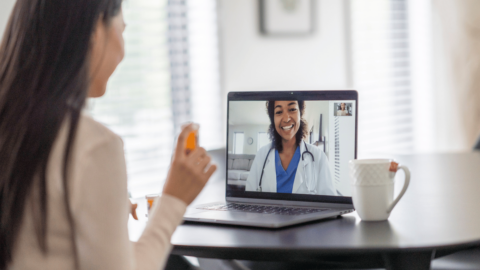The journey to recovery can feel like a heavy weight pressing down on your shoulders. If you’re struggling with opioid use disorder (OUD), you might be asking yourself tough questions: Do I really need help? Can I handle this on my own? Do I need Suboxone doctors near me?
You’re not alone, and it’s okay to wonder about the right time to seek support. Understanding when professional treatment, like seeing a Suboxone doctor, is the next step can feel overwhelming, but taking that first step could be the most important decision of your life.
In this article, we’ll explore the signs that it might be time to connect with a Suboxone doctor near you, how they can support your recovery, and why reaching out is a powerful act of self-care.
Signs It’s Time to Seek Help from a Suboxone Doctor
It’s not always easy to recognize when professional treatment is necessary. But certain signs indicate it’s time to consider seeing a Suboxone doctor:
1. You’re Struggling to Stop on Your Own
- Have you tried to quit opioids but found yourself returning to them?
- Are withdrawal symptoms making it impossible to stay sober?
If so, you’re not alone. Many people face this challenge, and Suboxone—a proven medication-assisted treatment (MAT)—can make the process safer and more manageable.
2. Cravings Are Controlling Your Life
- Do you feel like your thoughts are consumed by finding or using opioids?
- Are cravings preventing you from focusing on work, family, or personal goals?
Suboxone reduces cravings, giving you the clarity and stability to regain control of your life.
3. You’re Experiencing Negative Health Effects
- Are opioids affecting your physical or mental health?
- Do you feel isolated, depressed, or anxious as a result of your use?
OUD takes a toll on both the body and mind. A Suboxone doctor can help address the physical aspects of addiction while connecting you to counseling and support for mental health needs.
4. Relationships Are Being Affected
- Are loved ones expressing concern about your opioid use?
- Have relationships been strained or broken because of addiction-related behaviors?
Healing relationships often begin with healing yourself. Seeking treatment can help you rebuild trust and strengthen connections.
5. Overdose Is a Real Concern
- Have you experienced an overdose or a close call?
- Are you worried about the possibility of a future overdose?
Suboxone not only helps manage cravings but also reduces the risk of overdose by blocking the effects of stronger opioids.
What a Suboxone Doctor Can Do for You
Reaching out to a Suboxone doctor isn’t just about getting a prescription—it’s about creating a foundation for long-term recovery.
Here’s how they can help:
- Customized Treatment Plans: Every person’s journey is unique. A Suboxone doctor will tailor your plan to meet your specific needs.
- Medication-Assisted Treatment: Suboxone helps manage withdrawal symptoms and cravings, making recovery more achievable.
- Ongoing Support: Many doctors provide or refer you to counseling, therapy, and support groups to address the emotional and mental aspects of addiction.
- Safety and Supervision: Professional care ensures your treatment is safe and effective, minimizing risks.
Why You Don’t Have to Do This Alone
It’s common to feel like you should “handle it on your own.” But recovery doesn’t have to be a solo journey. Connecting with a Suboxone doctor near you can give you the support, tools, and guidance needed to move forward confidently.
When Local Suboxone Doctors Aren’t an Option
If finding a local Suboxone doctor feels difficult, don’t worry—help is still within reach. Telemedicine services like QuickMD connect you to certified Suboxone doctors from the comfort of your home.
How QuickMD Can Help
- Same-Day Appointments: No waiting weeks for care—get started today.
- Convenience: Access professional treatment wherever you are.
- Transparent Pricing: Affordable consultations with no hidden fees.
State-Specific Requirements for In-Person Visits
- Yearly In-Person Visit Requirement: Some states require patients to meet with a provider in person at least once a year to continue addiction treatment via telemedicine.
- QuickMD Clinics: To meet this requirement, QuickMD operates a few in-person clinics where patients can schedule their annual visits. This ensures you stay compliant with state regulations while continuing your telemedicine care seamlessly.
A Note for Patients in KY and TN
At QuickMD, we’re committed to making treatment accessible and supportive for as many patients as possible. However, due to state-specific regulations:
- We’re unable to accept new opioid use disorder (OUD) patients in Tennessee or Kentucky.
- If you live in KY or TN and haven’t previously received care for OUD with QuickMD, we won’t be able to proceed with your appointment, and it will be canceled.
We understand how important finding the proper care is, and we encourage you to connect with local providers who can meet your state’s requirements. For patients in other states, QuickMD provides a seamless telemedicine experience to help you start or continue your recovery.
Take the First Step Today
Deciding to seek help is a sign of strength, not weakness. Whether you’re ready to meet a local doctor or explore telemedicine options, the most important thing is to take that first step.
Ready to begin your recovery from opioids? Schedule an appointment with QuickMD and connect with a compassionate Suboxone doctor who understands your needs. Recovery starts with a single step—and you don’t have to take it alone.




